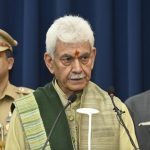A career is the sum of your professional journey. Many people embark on a career because it can help them achieve their goals, such as acquiring more knowledge and experience, taking on more responsibility, or earning higher salaries.
But finding a career that best suits you takes time—and your career will likely shift throughout your working life. You may end up changing roles or industries as your interests, motivations, and needs change.
The average person spends around one-third of their life working, so it’s no surprise that many people want to find a career that will be a good fit for them. Choosing a career first means learning as much as you can about yourself, your goals, and the larger context of work. Use the list below to help you begin that process.
Choosing the right career can be difficult, but having a defined career direction will help you with getting a job. But with a little hard work, some planning, and some serious self-reflection, you can set yourself on a path towards a fruitful, fulfilling career that can provide for you and your family.
A career plan is a strategy you’ll continuously develop to manage your learning and progression throughout your working life. Consisting of four stages, its purpose is to help you visualise the actions you need to take to achieve your career goals, and how to put these actions into practice.
Career planning is important for a number of reasons – having a career development plan in place reduce the risk of you making impulsive decisions, and it helps you to recognise when you’re ready to look for new career opportunities and develop new skills.
It also pays to seek out a traditional in-person third party, such as a school counselor. In addition to providing you with resources to help you select the next step in your higher education path, a counselor can also help you envision your career path. Let’s look at some of the biggest things to keep in my mind when looking past college to enter the real world.
Your passion and skills
What do you love to do? What would you do for free and still be happy? Your career may not ultimately be a perfect match to what you come up with, but daydream for a bit and then write down the biggest reasons you get up in the morning. What inspires you? What drives you? After you write that initial list, do you see any links in common?
Furthermore, take a minute and write down your top skills (writing, mathematics, computer coding, etc.). Do you see any connections that jump out between the two lists? If you do, you might be well on your way down your career path.
Your personality
Equally important to knowing what you love and what you are good at is knowing what makes you. If you are a people person, it would probably not be a good idea for you to run a library. If you are more of an introvert, you may not want to get into the field of customer service or hospitality.
Your goals
What do you want out of your career the most? Is having a high salary the biggest motivator or is a solid work-life balance your North Star? Do you want to travel the world or work remotely with ease from your kitchen table? Do you want to live in the heart of a major city in an apartment or in a more rural setting on a big plot of land? Where do you see yourself five, 10, or 20 years down the road?
Before you begin searching for your possible careers, you need to start plotting out what your future could look like. Write up a list of what is most important to you. This is where creating a vision board could also come in handy to help you begin to hone in on the pillars of your potential career.
Your values
What do you value the most when it comes to finding a career? Just as you need to start thinking about your goals, you need to determine what values will help propel you to those goals. It may be handy to keep your list of personality traits nearby for this exercise because many of them may be connected to your values.
What type of work culture or leadership structure do you think you would thrive in? Are there any “deal breakers” that arise from your personal convictions? Many of these answers may take years to reveal themselves, but some may be easier to see than others.
Your job prospects and outlooks
Along with passion, you must also factor in practicality — as in what jobs are dying off and which ones are projected to surge in terms of popularity and necessity to meet the needs of our changing world.
Your educational costs and training
Simply put, no two occupations are the same when it comes to the amount of education and training needed. Some require graduate school. Some require internships. Some professions, such as becoming a doctor, require logging in a certain number of hours as a resident.
As you continue to whittle down your list of possible occupations, know how much schooling and training will be necessary for you to obtain a certain profession. That will help you begin to create a rough timeline in your mind of when you can go from student to practitioner — and determine the possible costs of those educational paths as you start planning for college and managing your finances.
Your resources at home and school
It also pays to seek out a traditional in-person third party, such as a school counselor. In addition to providing you with resources to help you select the next step in your higher education path, a counselor can also help you envision your career path.
Lastly, you can always sit down with a parent or family member — especially if he or she is in a profession that is of interest to you. Even if they are not, there is a good chance that they might know someone who is — and could possibly set up an informational interview.
Your learning opportunities
One of the best ways to get a feel for a particular occupation is to set up an informational interview with a person from that industry. Reach out to someone via email to set up 15 minutes to talk either by phone, Zoom, or, if local, in-person for a cup of coffee.
Prepare a brief list of questions to ask, with the last question being “How can I help you?” Ask who else you should contact. Follow up with a thank-you note, and, before long, you will be well on your way to learning about the art of networking as you continue to progress down your career path.
A recent survey on career option awareness among Indian students has revealed that a staggering 93% of the students aged 14 to 21 were aware of just seven career options though there are more than 250 different types of job options available in India.
If you don’t know what to do, you’re like many other students and it’s perfectly normal. Not many people have a firm career choice in mind. It can be a difficult decision and this is where we can help.
The first career you choose doesn’t have to be the one you stay in for life. It’s best to think about your initial career steps rather than being daunted by a long-term decision. The earlier you start thinking about your career choices, the more time you’ll have to plan ahead before you graduate. You should make a positive start by gaining experience or volunteering in an area that interests you. This will give you more knowledge and add valuable skills to your CV.
(The author can be connected through email on [email protected].Twitter/ X : @haniefmha)





